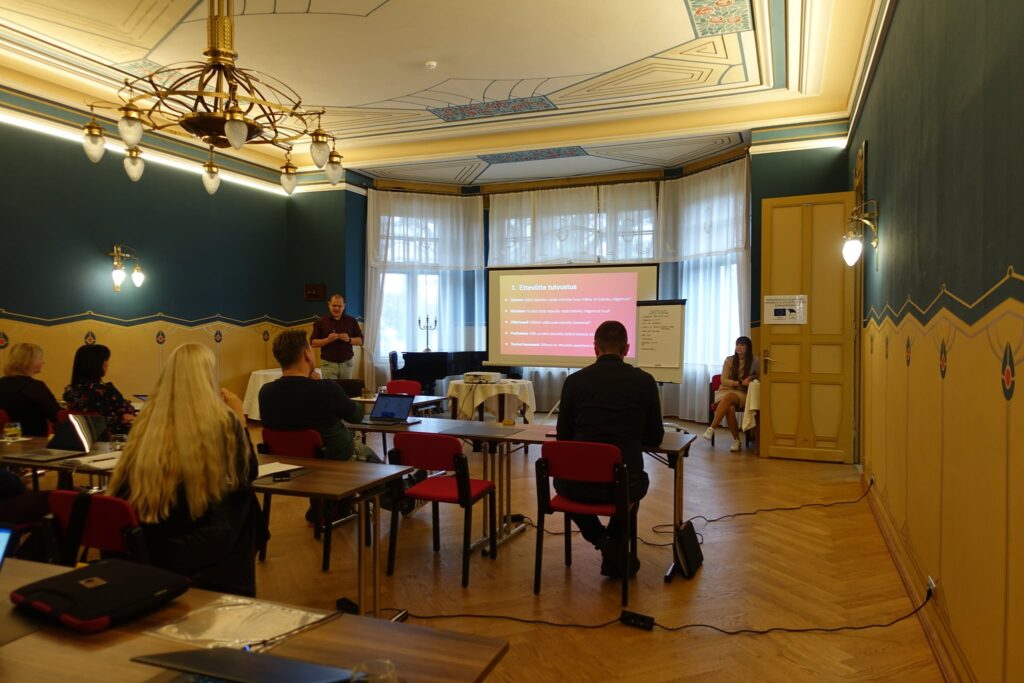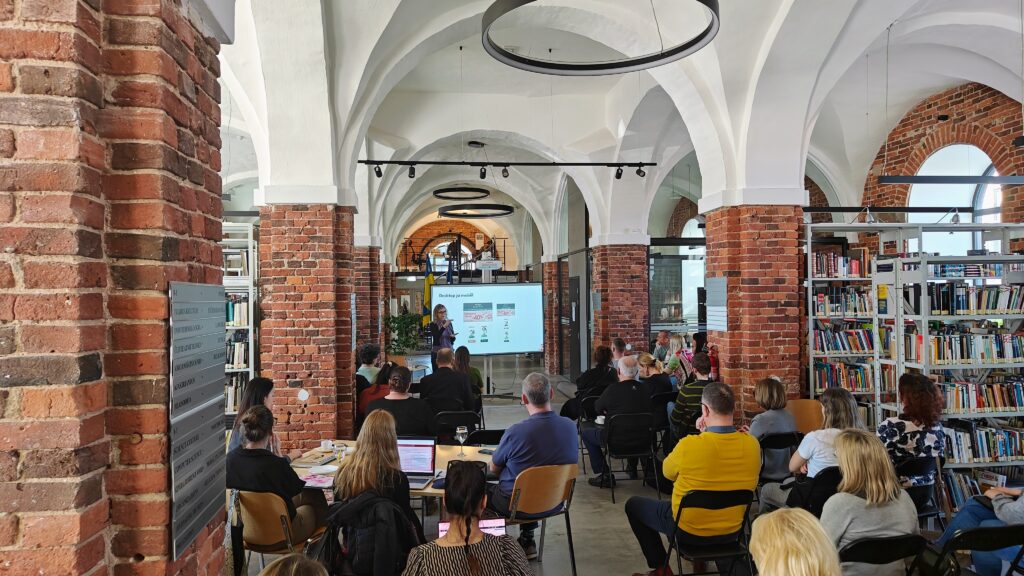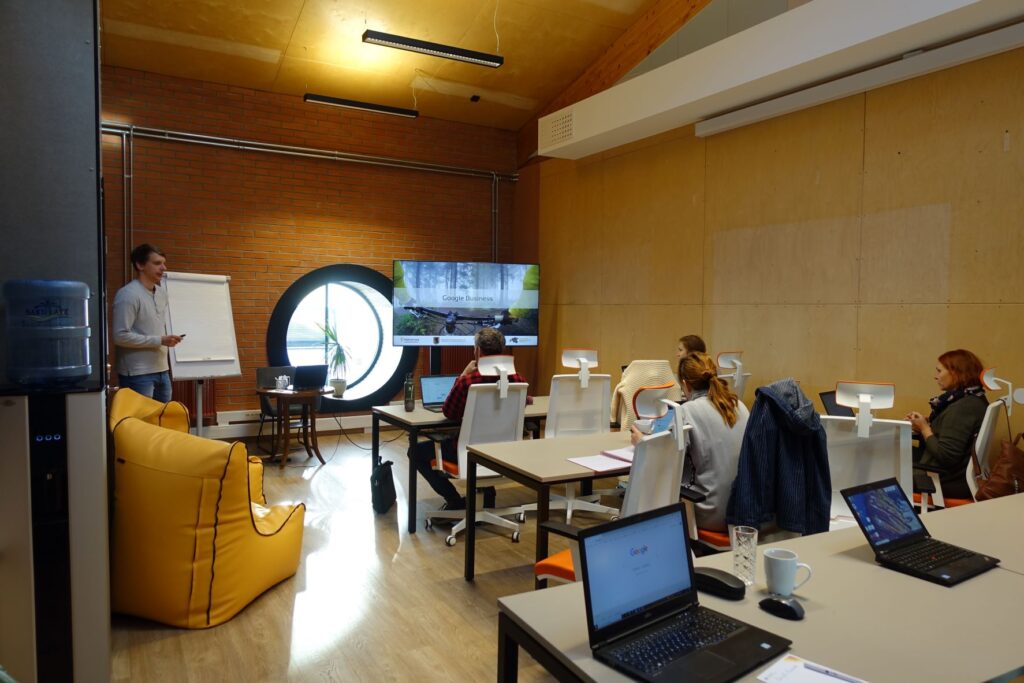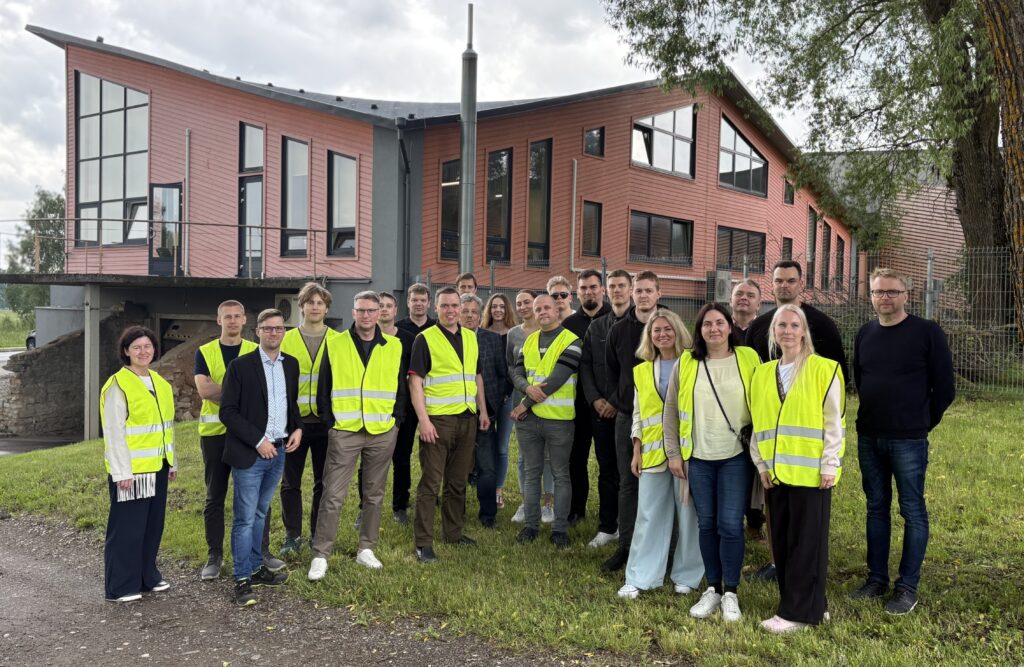The main goal of the Pärnu County Innovation Hub KOBAR is to connect entrepreneurship (including business incubators, business representative organizations, etc.), science (universities), the public sector, civil society, and the environment.
This is a joint project of the Pärnu County Development Center and the University of Tartu Pärnu College. The project’s co-financing is covered by Pärnu County Association of Local Governments and the University of Tartu.
This project is part of the “Attractive Regional Business and Living Environment” measure, aimed at enhancing the capacity of local government units to support the development of priority business sectors outlined in the regional development strategy. It seeks to promote the creation of high-value-added jobs and foster the development of comprehensive, demand-driven public service networks.
In the video below, project participants share an overview of the innovation center. Among them is an entrepreneur who belongs to a network of more than 1,000 female entrepreneurs.
The project will continue several key activities already managed by the Pärnu County Development Center, including:
Several new activities with a county-wide impact will be introduced, including:
To enhance collaboration, more than 10 thematic clusters are launched. Thousands of people have participated in their activities
The University of Tartu Pärnu College will renovate and redesign its lobby to develop a regional innovation center. The goal is to transform the first-floor lobby into a dynamic and modern multifunctional space, providing an attractive environment for collaboration and co-creation between different stakeholders, including businesses and public sector representatives.
Research projects will be conducted for Pärnu County municipalities on topics such as:
This initiative includes activities supporting regional competitiveness, requiring university and research-based expertise beyond the core focus areas of Tartu University Pärnu College.
Planned activities within the project include:
Development of a joint training program in IT and engineering (covering technical, mechatronics, robotics, and technology-related training) in collaboration with external education and business partners, including Tallinn University of Technology.
The project will include three training cycles for production managers, developed with input from engineeringCLUSTER.
Management training programs aimed at enhancing modern and competitive leadership skills, focusing on future leadership competencies to meet business needs, regional economic dynamics, and upcoming economic potential.
Company-specific case studies – collaborative problem-solving between business executives, university researchers, and developers.
The Design Thinking Lab will focus on the design of public services at both the municipal value chain level and interaction points with local businesses. By applying service design methodologies and tools, the lab will enable local businesses and municipalities to develop new services and improve existing ones.
Once a year, a Project Management Masterclass will be conducted, aimed at project managers from businesses, the public sector, and the non-profit sector in Pärnumaa. The goal is to deepen knowledge about:





Piesta Kuusikaru is a family-owned farm located in Estonia’s scenic Soomaa region, combining rich cultural heritage with modern apple product innovation. Established in 1868 and lovingly restored by the current owners, the farm produces a variety of artisanal apple-based products, including pure apple juice, spiced apple drink, shrub syrup, slowly fermented apple cider vinegar, and award-winning apple stroop. Every product reflects their commitment to quality and craftsmanship.
Beyond production, Piesta Kuusikaru Farm is dedicated to sustainable practices and the principles of the circular bioeconomy. Recognizing the potential of apple residues like pomace, seeds, and peels, the farm actively seeks innovative ways to valorize these by-products into high-value applications. This aligns with their vision of minimizing waste and unlocking new opportunities for environmental and economic sustainability.
Piesta Kuusikaru Farm is eager to collaborate with other similar producers in the region to address shared challenges and explore innovative solutions. By pooling resources, knowledge, and ideas, they aim to foster a stronger network of sustainable producers that collectively advance the circular bioeconomy and create meaningful impacts within the industry.
Liikluskomisjoni esimees on Marko Šorin, Põhja-Pärnumaa valla abivallavanem
Liikmed:
Turvalisuse nõukogu esimees on Eiko Tammist, Saarde vallavolikogu esimees
Liikmed: